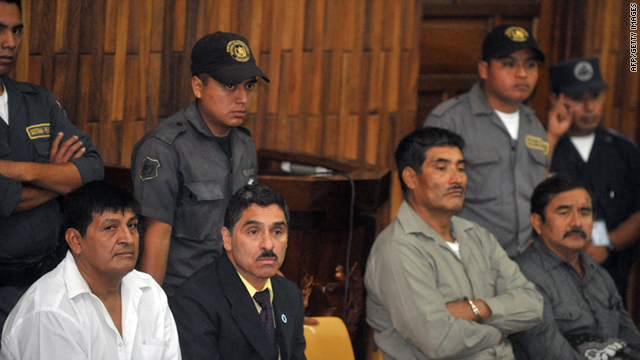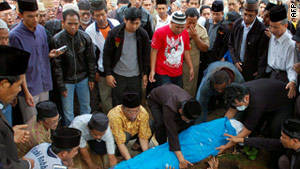By Zach Waksman
Impunity Watch Reporter, Middle East
CAIRO, Egypt – The continued protests against Egypt’s ruling Supreme Council of Armed Forces (SCAF) suddenly changed their tone on Friday. Tens of thousands of Islamists flooded Cairo’s Tahrir Square, the center of the African kingdom’s continued push for democracy that has spanned past several weeks, and recited anthems calling for a country governed by Islamic Sharia law.

The impressive demonstration was the largest to take place since the revolution that ousted President Hosni Mubarak from power in February. Originally advertised as a peaceful rally dubbed the “Friday of unity and closing ranks” that was meant to reiterate the revolution’s demands, it was instead dominated by Islamic groups, including fundamentalist Salafis and the more moderate Muslim Brotherhood, two of the demonstration’s organizers. Some secular activists who attended claimed to have been silenced, leading twenty-eight secular organizations to withdraw from the square in protest to the event. The famed April 6th group, one of the leading secular groups, denied that report.
After years of suppression by Mubarak, the demonstration marked a resurgence of religious organizations as a political force in Egypt. The clearest sign of this development was the chants heard Friday, many of which played off of those said during prior demonstrations. Instead of “Hold your head up high, you’re Egyptian,” nationality was replaced by religion, using “Muslim” as the final word in the slogan. To participants, the rally was a signal of how efficiently Islamists could organize themselves. “We’re showing today — to both the people and to the military leadership — that we’re the majority of the population,” Haithem Adli, a participant who held up a banner that read in part, “Together on the path to heaven,” told the New York Times.
“If democracy is the voice of the majority and we as Islamists are the majority, why do they want to impose on us the views of minorities — the liberals and the secularists?” asked Mahmoud Nadi, a student who built off of Adli’s comments. “That’s all I want to know.”
Among secular activists who witnessed the spectacle, reaction was mixed. Some of them believed that the performance would have little overall effect. One such activist, Mohammed Deraz, accepted the Islamists’ presence, but felt that they were only trying to capitalize on the momentum created by people like himself in starting and continuing the revolution. “We made this revolution and we will continue,” he said. “…[N]obody will steal my revolution. I made it by myself and I will continue to the end or I will die. Give me liberty or give me [death], that’s what I’m doing.” Another secular protester believed that this rally was a one-time event, and that the Islamists would leave the square and let the ongoing sit-in continue.
In the aftermath of the rally, top analysts believe that the demonstration was a show of power that could not be exceeded. Emad Gad, a political analyst with the Ahram Center for Strategic and Political Studies, said that it “represent[ed] the full capacity of the Islamist forces[.]” Additionally, the different groups would need to be treated differently, according to Rabab Al-Mahdi, a professor of political science at the American University in Cairo. “There are different trends, the Salafis, former militant groups like the Gamaa Islamiya, the Muslim Brotherhood and they all have different ideas on how to conduct politics and what they mean by an Islamic state,” she said.
And because of how the event quickly became an Islamist demonstration, the overall impact for the organizers could be a negative one. Such a result is already proving true. The Muslim Brotherhood’s Freedom and Justice Party rejected the slogans vocalized on Friday. Party Vice Chairman Essam al-Erian wrote on the Party’s website that it had previously rejected such demands and did so again after participants attempted to impose their views.
The Muslim Brotherhood’s role in Egypt’s transition to democracy appears to be critical. But what that role is remains unclear, leading to continued speculation.
For more information, please see:
Agence France-Presse — Egypt rally not harbinger of Islamic state: analysts — 31 July 2011
Australian Broadcasting Corporation — The growing power of Egypt’s Islamists — 29 July 2011
Al-Masry Al-Youm — Freedom and Justice Party rejects Islamist slogans in Tahrir — 29 July 2011
New York Times — Islamists in Egypt Flood Square in Cairo in Show of Strength — 29 July 2011
Voice of America — Islamists Show Solidarity in Massive Egypt Rally — 29 July 2011
Al-Ahram Weekly — The Islamists are coming — 28 July 2011



